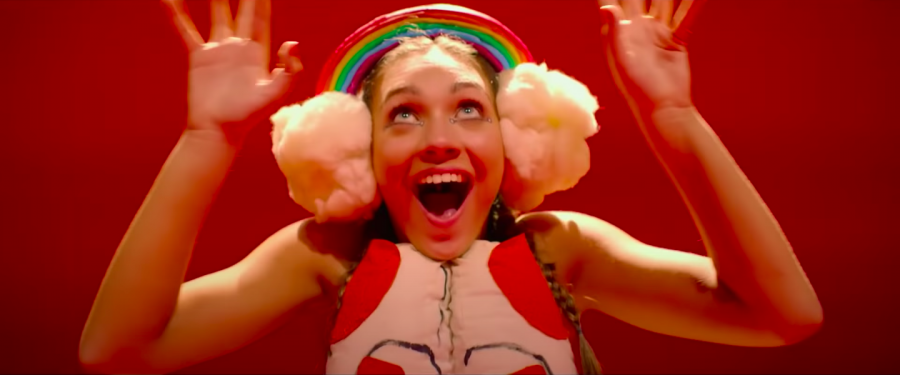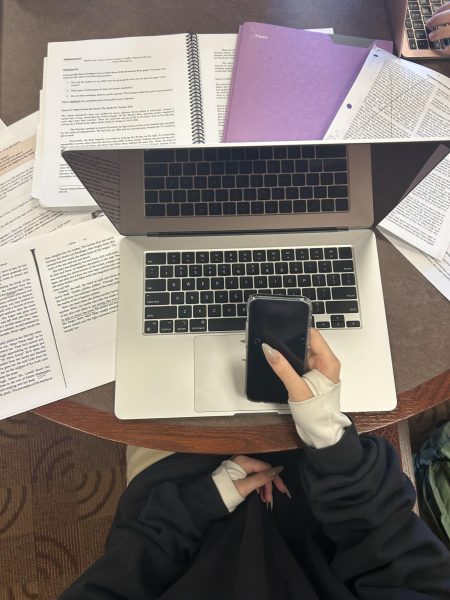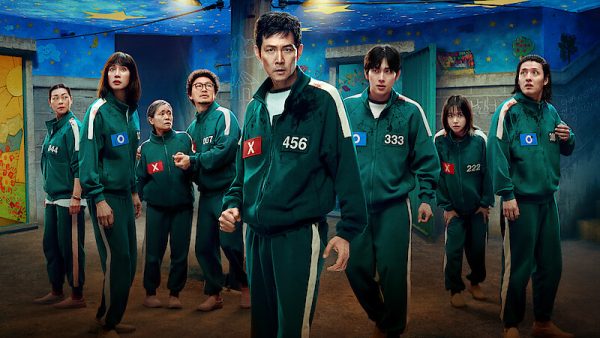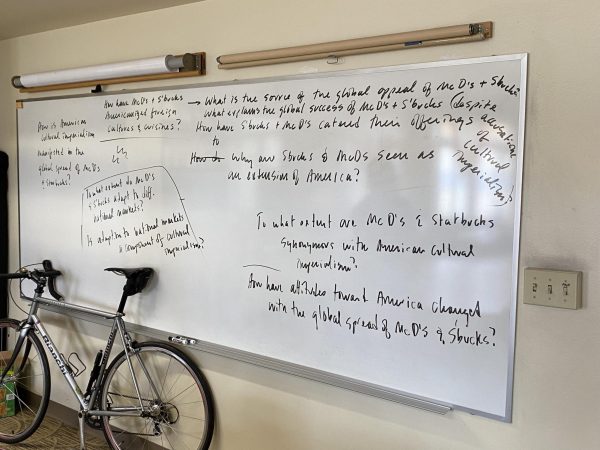Music to Nobody’s Ears
Autistic people and film critics alike condemn Sia’s new film
Courtesy of Movie Coverage on YouTube
Critics and autistic people say Maddie Zeigler’s portrayal of autism in Sia’s new movie, Music, is inaccurate and offensive.
When Music—the first film produced, directed, and written by Australian pop star Sia—was released in January, five years after its conception and three years after its filming. The countdown to the release of the film then began, and with it came a new focus on the casting. Creating the movie after garnering some confidence in film direction after her 2014 Chandelier music video, Music—which revolves around the lives of a nonverbal autistic girl bearing the film’s namesake, her older drug-dealing half-sister, and their African-immigrant neighbour—has drawn sharp criticism from film critics and the autistic community for its basic and stereotypical portrayal of autism and the actress who was chosen to portray it.
Sia decided to cast her long-time friend, partner, and goddaughter Maddie Zeigler as Music, even though Zeigler herself is neurotypical. This first started to cause outrage on Twitter and TikTok back in November of 2020, when Sia announced the release of the movie. According to BuzzFeed, social media was flooded with criticism of Sia’s casting choices. Paige Layle, a TikToker known for speaking out against the issues autistic people face, responded to the controversy with a TikTok saying, “Sia, girl. The number one thing we’re saying is to include us.” She continued: “Why did you think having a neurotypical play someone who’s autistic was going to be okay with the autistic community?” Dawn-joy Leong, an autistic researcher and PhD, shared Layle’s perspective, taking to Twitter to express her disappointment with Sia. “Creating work on disability without disabled input is ableist and dismissive, no matter [whether there were] ‘good intentions,’” she said.
Leong’s tweet was one that actually caught Sia’s attention. “I’m so sad and confused that you think I didn’t research and utilize my friends on the spectrum! So many assumptions,” Sia tweeted back. In response to the backlash, Sia claimed that she tried to work with an unnamed nonverbal autistic actress, but that the actress found the environment “too stressful”, prompting the choice to cast Ziegler instead.
The opponents to the movie countered Sia’s point by saying that even though one autistic actress wasn’t able to act in it, there were plenty willing to take her place. @HelenAngel on Twitter said, “Several autistic actors, myself included, responded to these tweets. We all said we could have acted in it on short notice. These excuses are just that—excuses.” Sia responded with some expletives and, “Maybe you’re just a bad actor.”
Whether or not the decision to cast Zeigler was justified, the backlash from that was just the dress rehearsal for the uproar that emerged after people were actually able to watch the movie. Even though the film was nominated for multiple Golden Globes by the Hollywood Foreign Press Association, the numbers don’t look good—Music has been given a shockingly low rating of eight percent on Rotten Tomatoes and 3.1/10 on IMDb.
The headlines don’t look good either, with the New York Post saying, “Sia’s first film is unwatchable and offensive,” and adding, “[Zeigler’s portrayal of autistic people] is an uncomfortably heightened imitation that never rings true and verges on mockery.” Camille Proctor, executive director and founder of The Color of Autism Foundation, said, “I don’t even know where to start. I don’t like the portrayal of the young autistic woman. I feel like [Ziegler] was doing parody.”
A lot of the frustration from critics came from Zeigler’s stereotypical movements and behaviour. Johnny Oleksinski, a movie critic for the New York Post, said that the zany and colorful visions into Music’s mind were an inaccurate portrayal of autistic people and their view on the world. “She runs from a man dressed up as a shaggy dog while performing the angular dances that made her famous,” he wrote. “Then she’ll jump with Hudson into a swimming pool filled with foam blocks. Does Sia think that autistic persons see the world like a… Teletubby?”
Another major misstep by Sia in the film was the implicit endorsement of physical restraint. The autistic community was not happy with this visualization, with Zoe Gross, director of advocacy at the Autistic Self Advocacy Network, saying, “had the filmmakers chosen to meaningfully involve autistic people from the beginning, we could have told them how catastrophically irresponsible it is to encourage viewers to use the kind of deadly restraints that killed Max Benson, Eric Parsa, and many other members of our community.”
The portrayal of this kind of restraint, found in schools with higher density of neurodiverse students, brings the movie’s plot back down to Earth in a way. The film, shown through very fictional and almost childish characterisation (the estranged father’s name being Harpsichord), hits a bad note in its relativity to high schoolers when it portrays restraints seen all too often in schools especially against neurodivergent people. “Though there are guidelines around restraint and seclusion in schools, there are no federal laws governing how they can be used,” according to NPR and the U.S. Government Accountability Office.
With restraint techniques and incredibly inaccurate portrayals of autism, it’s no wonder people at Bishop’s and in the world are bothered by the film. “I refuse to watch something that is so clearly disrespectful to the autistic community. It shouldn’t be hard to create a movie that autistic people will love, but unfortunately Sia put herself first when making it,” said Mira Gowda (‘22). Murjani Rawls of Substream Magazine also added, “There’s so much that this movie gets wrong about the community that is searching to uplift.”
The harm to the community is heightened when you consider the history of inaccurate representation of autistic people in Hollywood and the Media. Over thirty years ago, a 1988 film called Rain Man tried to do the same thing, and failed in the accuracy department miserably. At the time, autistic people were so largely overlooked, and this was one of the first movies—and certainly the most popular—to represent the autistic experience. Unfortunately, that societal ignorance of autistic personality and behaviour shone through the film, as it presented its lone autistic character as a genius with special abilities, an inaccurate stereotype, according to The Guardian, yet one that took hold of popular culture and is still prevalent today.
Music has it all wrong, say critics, viewers, and autistic people. Attempting to represent a community long forgotten, it took a big swing and a big miss, offending film critics and autistic people to the core. It’s inaccurate portrayals of both autistic personality and restraint techniques only add more harm and stereotypes to an already suffering group.

Kyle Berlage joined The Tower as a freshman in 2018. Was he a terror then? Yes, but so were others on staff. After all, if all your friends jump off a...











